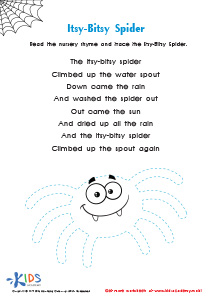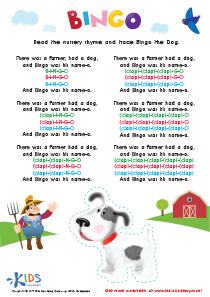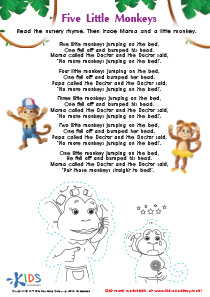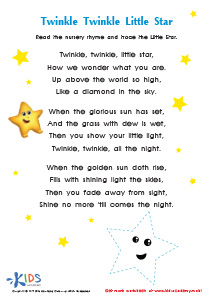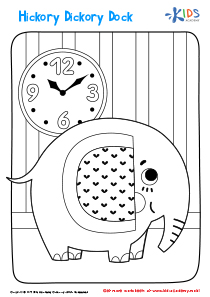Easy Nursery Rhymes Worksheets for Ages 8-9
4 filtered results
-
From - To
Discover our "Easy Nursery Rhymes Worksheets for Ages 8-9" designed to blend fun and learning! Engage your child with creative activities that enhance reading, comprehension, and phonics skills through classic nursery rhymes. Each worksheet includes exercises designed to challenge and excite, from fill-in-the-blanks to sequencing and more. Our educational resources make it easy to foster a love for reading and foster vocabulary development. Perfect for homeschooling or to supplement classroom learning, these worksheets turn educational time into a delightful experience. Keep young minds active and entertained with our expertly crafted nursery rhyme worksheets!
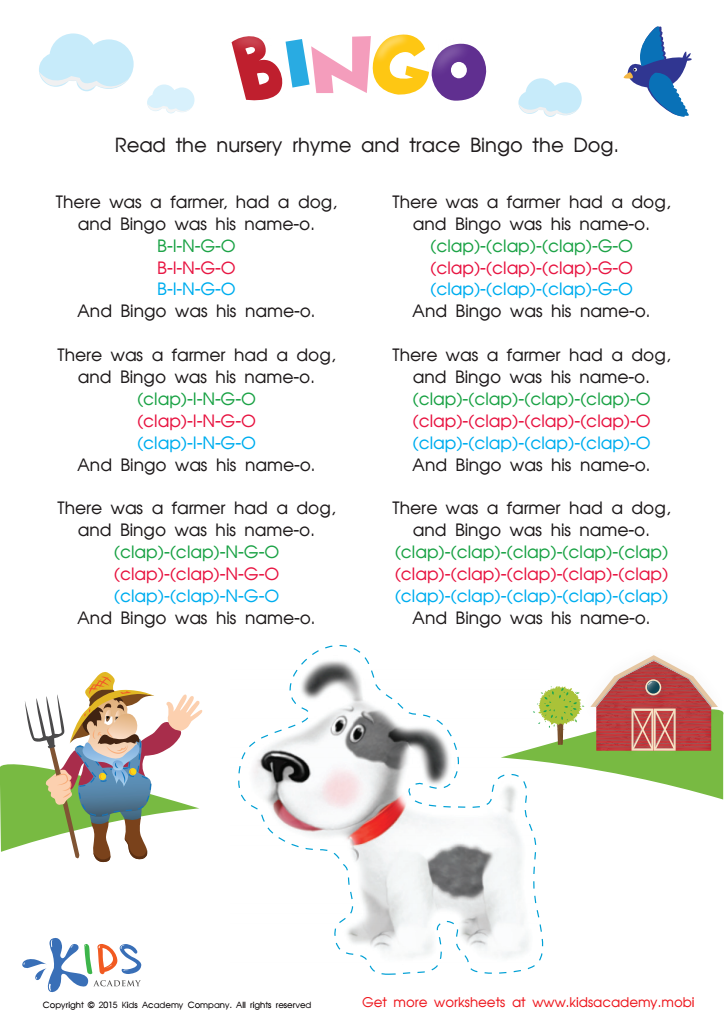

Nursery Rhymes: The Bingo Song Worksheet


The Five Little Monkeys Nursery Rhyme Worksheet
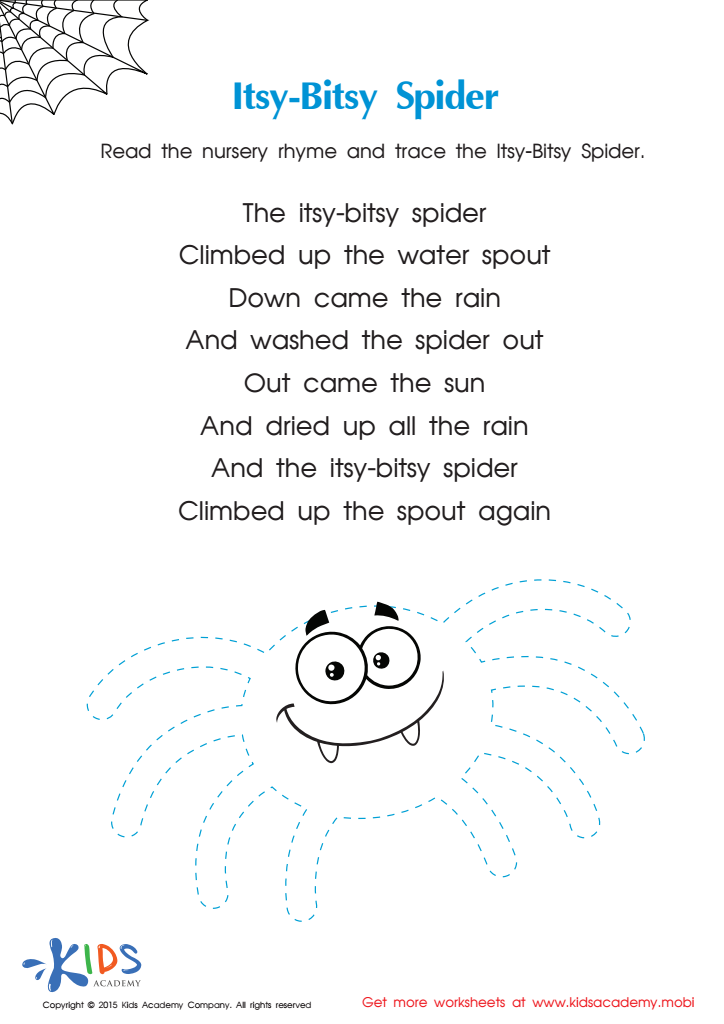

Itsy Bitsy Spider Nursery Rhyme PDF Worksheet
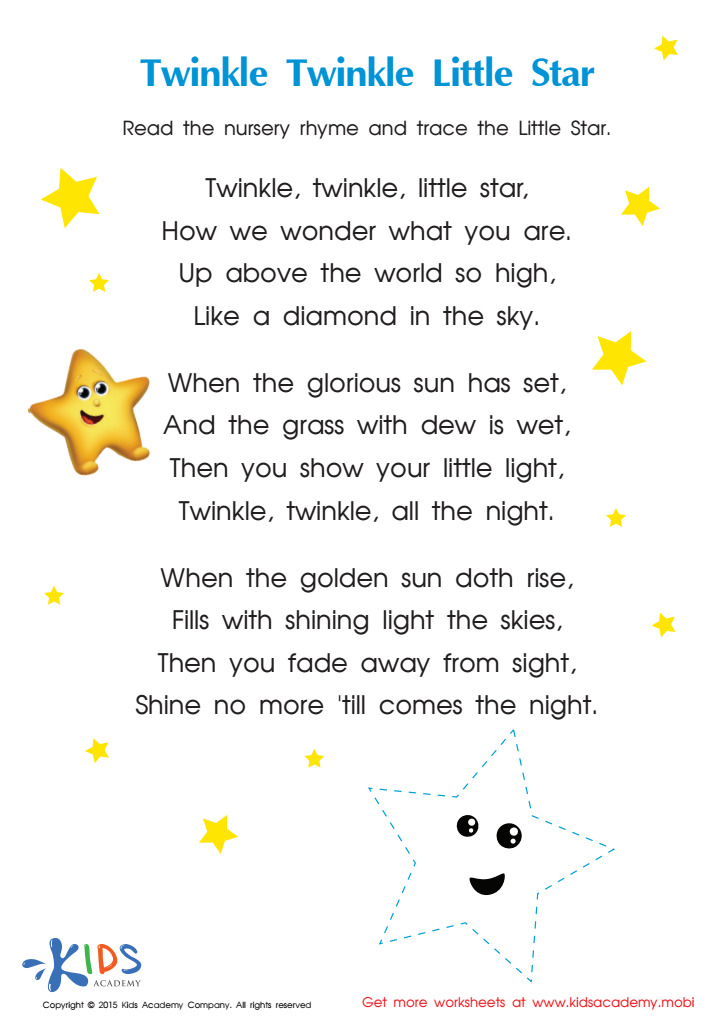

Nursery Rhymes: Twinkle Little Star Worksheet
Parents and teachers should care about easy nursery rhymes for children aged 8-9 because these rhymes provide numerous developmental benefits crucial at this stage of learning. While nursery rhymes are traditionally introduced to younger children, recycling them for slightly older kids can offer unexpected advantages.
First, nursery rhymes enhance language skills. Repetitive patterns and catchy melodies help children improve their vocabulary, pronunciation, and grammar. This familiarity can reinforce phonemic awareness, aiding their reading and spelling ability.
Secondly, rhymes contribute to developing memory and cognitive skills. Their rhythmic structure and repetitive nature help children recall important details, sharpening their memory and recall abilities.
Nursery rhymes also promote social interaction and emotional understanding. Singing together creates a sense of community, aiding social skills and emotional expression. This is critical as children develop more complex social interactions at this age.
Lastly, simple, enjoyable nursery rhymes can ignite a love for music and literature, serving as a steppingstone to more advanced reading and language arts. They offer a fun, stress-free way for children to enjoy learning, fostering a positive attitude toward educational activities.
Overall, reintroducing easy nursery rhymes at this age can reinforce foundational skills while paving the way for new educational milestones.

 Assign to My Students
Assign to My Students











